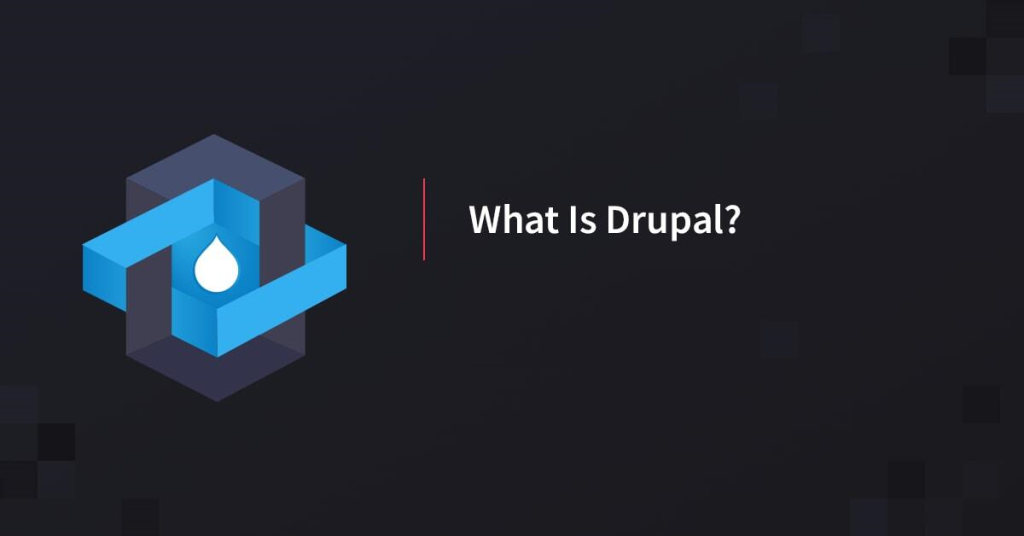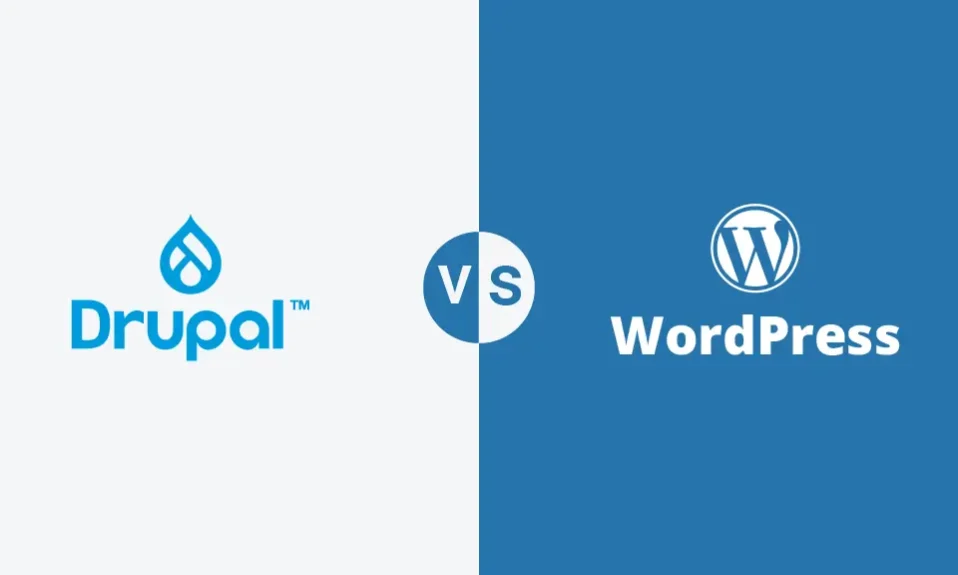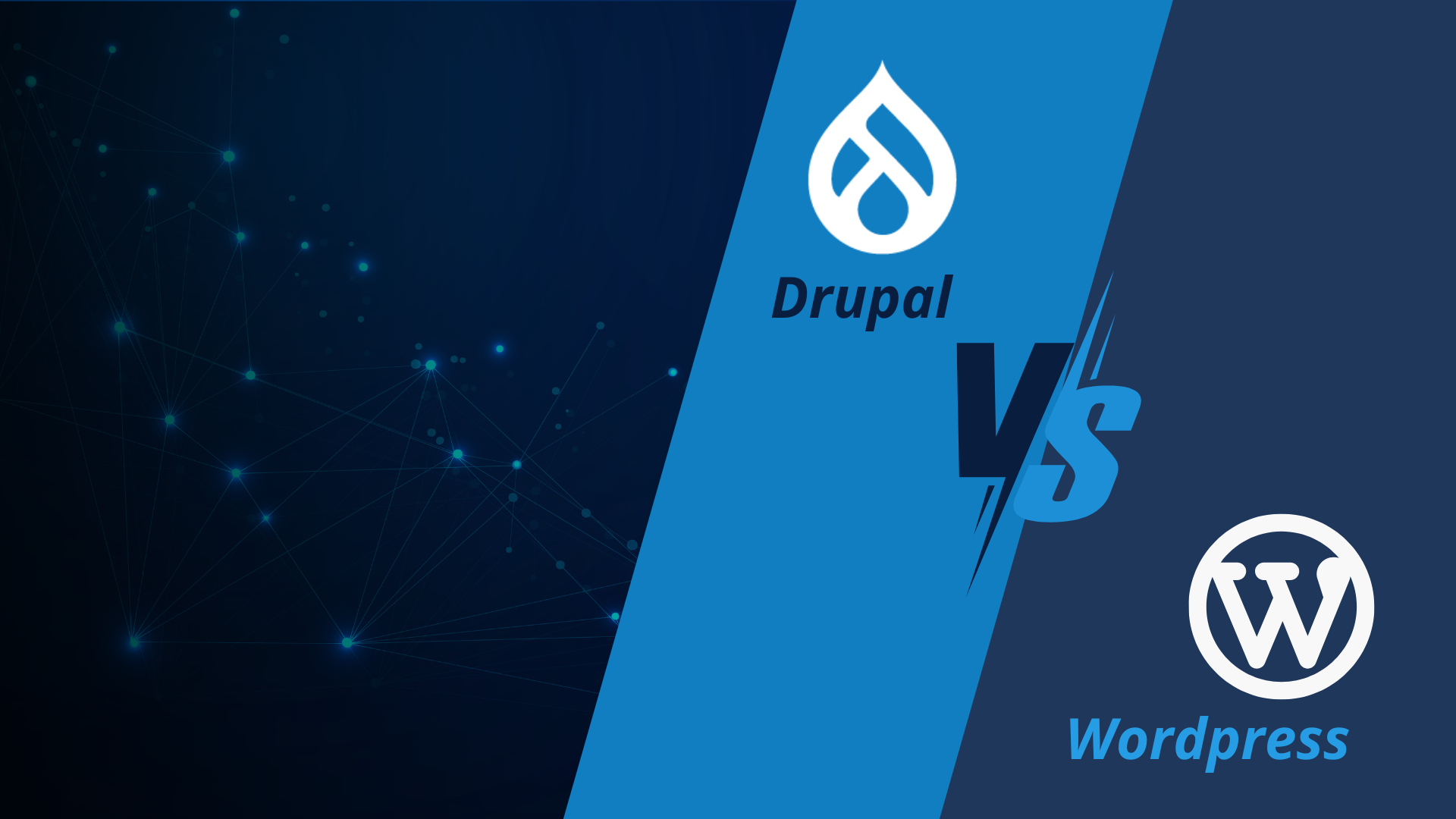Drupal and WordPress are two of the most popular content management systems (CMS) used for website development. Each has its strengths, and which one is more suitable depends on the specific needs of the website. In this blog we will come across some key advantages of Drupal over WordPress:
What is Drupal?
Drupal is an open-source content management system (CMS) that allows individuals and organizations to build, manage, and organize hosting websites and digital experiences. It is highly flexible, scalable, and powerful, making it particularly well-suited for complex websites that require custom content types, detailed user permissions, and high-performance handling of large volumes of data or traffic.

Key Aspects of Drupal
1. Open-Source Software
- Drupal is free to download, use, and modify. It has a large, active community of developers who contribute to its continuous improvement, including the creation of modules, themes, and extensions.
2. Modular Architecture
- Drupal is known for its modular design, meaning that its core functionality can be extended with thousands of available modules. These modules add features like content types, e-commerce functionality, search, SEO tools, and more. You can build custom modules to suit specific needs.
3. Content Management
- As a CMS, Drupal is used to create, edit, and manage content across a website. It supports everything from simple blogs to highly structured content with detailed hierarchies and taxonomies.
- Drupal excels in managing complex content relationships, workflows, and custom data structures.
4. Themes and Templates
- Drupal uses a theme layer to control the appearance of a site. Themes define how content is presented to the user, and they can be customized or built from scratch to create a unique look and feel for the website.
- Developers can use templating engines like Twig to create flexible and dynamic layouts.
5. Robust User Permissions
- Drupal allows for advanced user management and role-based access controls. You can create multiple user roles with very granular permissions to control who can view, edit, or manage different parts of the website.
6. Multilingual Capabilities
- Drupal comes with built-in multilingual support, allowing you to easily create and manage content in different languages. This is ideal for global websites that need to cater to audiences in various regions.
7. Scalability and Performance
- Drupal is designed to handle large-scale websites with high traffic. Its caching mechanisms (such as Varnish and Memcached) and other performance optimizations make it capable of supporting enterprise-level applications.
- Popular for building complex websites, Drupal is used by governments, universities, and large enterprises that need scalable, secure, and robust platforms.
8. Community and Support
- Drupal has a strong global community that provides support, documentation, and contributes to the development of the platform. Community-contributed modules and themes extend Drupal’s core functionality.
9. Security
- Drupal is known for its strong emphasis on security, which is why it is used by many government agencies, large enterprises, and organizations with sensitive data. The Drupal security team regularly releases updates and patches to address vulnerabilities.
10. Use Cases
- Enterprise websites: Due to its scalability and customization options, many large organizations use Drupal for enterprise-level websites.
- Government websites: Its security and multilingual support make it a favorite for government agencies.
- Higher education websites: Universities and schools use Drupal for managing large amounts of content, multi-site management, and user roles.
- Media and publishing: Drupal is a good fit for managing complex editorial workflows and content-heavy websites.
- E-commerce: While WordPress is often associated with simpler e-commerce sites (via WooCommerce), Drupal can support more complex e-commerce scenarios using modules like Drupal Commerce.

Advantages of Drupal Over WordPress
1. Greater Customization and Flexibility
- Drupal is highly customizable and more flexible for building complex, large-scale websites. Its architecture allows developers to create custom content types, views, and fields more easily than WordPress.
- It is suitable for websites that require complex data models or highly customized content presentation, making it ideal for advanced projects like enterprise websites, educational portals, and e-commerce platforms.
2. Scalability
- Drupal is known for handling large amounts of content and traffic better than WordPress, especially in terms of performance. Its modular architecture and caching systems (like Varnish and Memcache) help in scaling high-traffic websites.
- Big organizations, including government agencies and large enterprises, often choose Drupal due to its scalability.
3. Security
- Drupal has a reputation for being one of the most secure CMS platforms, which is why it’s used by governments and financial institutions. Its robust security features and a dedicated security team regularly release security updates to ensure protection against vulnerabilities.
- WordPress, being more popular and easier to use, is often a more frequent target for hackers, though it can be made secure with proper precautions.
4. User Permissions and Roles
- Drupal has an advanced user permission system out of the box. You can create multiple user roles with highly specific access levels and granular control over permissions, which is more detailed compared to WordPress.
- This makes Drupal a better choice for websites that require complex workflows and user permissions, such as community portals, membership-based sites, or corporate intranets.
5. Multilingual Support
- Drupal has built-in multilingual capabilities, allowing for seamless support of multiple languages without the need for external plugins. WordPress can also support multilingual functionality, but it typically requires third-party plugins, which can add complexity and potential security risks.
6. Taxonomy and Content Organization
- Drupal’s taxonomy system is far more powerful, allowing for better handling of complex content and categories. This is particularly useful for websites that require detailed content categorization, filtering, and faceted search.
- While WordPress has tags and categories, Drupal’s system offers more flexibility in organizing and managing content across large sites.
7. Enterprise-Level Content Management
- Drupal is often chosen for large-scale enterprise websites, government portals, universities, and large organizations because of its capacity for handling large volumes of data, complex workflows, and content management requirements.
- Its emphasis on customizability and functionality makes it a better fit for enterprise-level solutions compared to WordPress, which is often more suited for small to medium-sized websites.
8. Developer-Friendly
- Drupal is more developer-focused than WordPress. It provides developers with the tools to build highly customized solutions, especially through its extensive API support and the ability to use custom modules.
- Although WordPress is more user-friendly for beginners, Drupal is geared toward users with development skills who want to build highly complex sites with fine control over every aspect.
9. Performance and Caching
- Drupal has built-in caching features (e.g., Drupal caching, Varnish, and Memcached) that significantly boost performance, especially for larger websites with high traffic.
- WordPress can also handle caching with plugins, but Drupal’s built-in solutions are often more effective for high-traffic websites.
10. Versioning and Workflow
- Drupal offers more advanced version control and content workflow management tools, allowing for multiple revisions of content and complex editorial workflows.
- WordPress can support workflows through plugins but doesn’t offer the same level of out-of-the-box functionality for version control and editorial workflows.
11. Customizable Content Structure
- With Drupal, you have greater control over content structures and fields, including creating custom content types and fields using the core system without the need for third-party plugins.
- WordPress typically requires third-party plugins or custom development for similar functionality, which can be less reliable and harder to maintain.
When to Choose Drupal over WordPress:
- You need a highly customizable website with complex data structures.
- Your project requires a sophisticated content management system for enterprise-level applications.
- Security is a primary concern (e.g., government or financial websites).
- You require detailed user roles, workflows, or permissions.
- You need a platform that can scale for high traffic without sacrificing performance.
While Drupal offers a lot of advantages in terms of flexibility, power, and security, it also comes with a steeper learning curve compared to WordPress hosting, which is typically easier for beginners to use.
